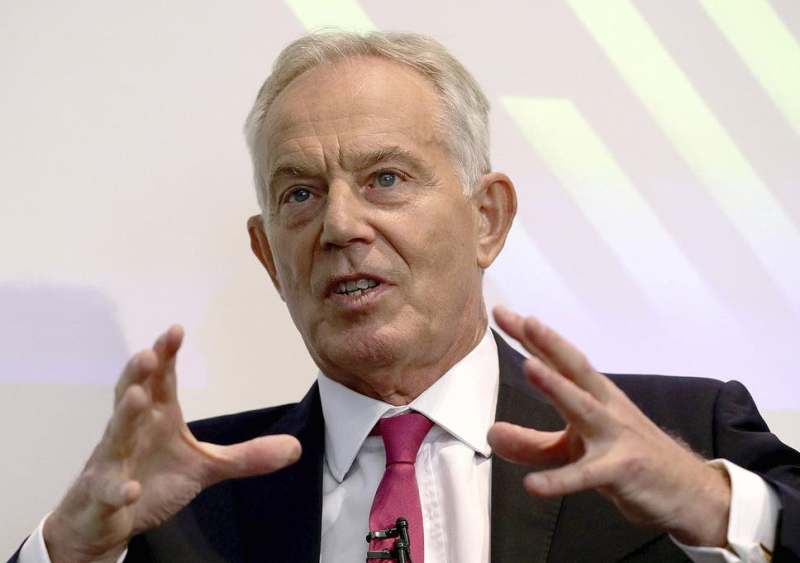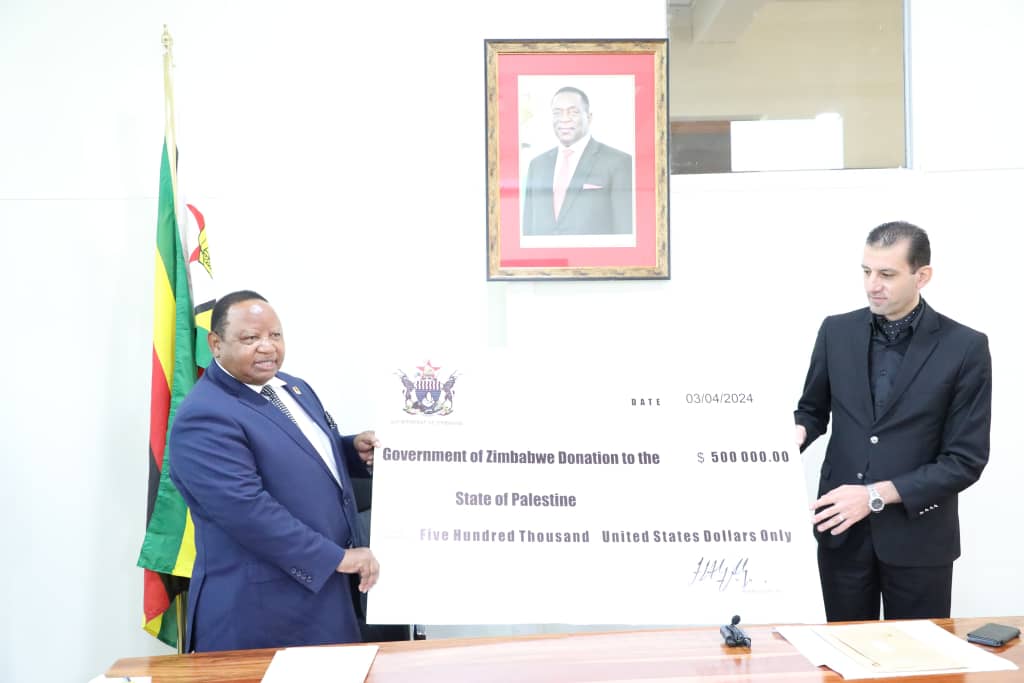
The relationship between the United Kingdom and Zimbabwe has been consistently unsteady since the 1997 collapse in negotiations between London and the ruling ZANU-PF government, who had been looking to introduce a new land reform programme.
Former British Prime Minister Tony Blair said that he would be “happy” to meet with Zimbabwean President Emmerson Mnangagwa and called on the African country to introduce economic reforms.
“I am happy to speak to Mnangagwa, but these things are best done in a private way”, he said while speaking to CNBC Africa on Tuesday.
“I was actually thinking about Zimbabwe the other day. I think, at certain points, there were misunderstandings, not genuine disagreements. If Zimbabwe were to get its act together it would be an exciting place to be”.
Blair urged the president to show “real commitment or reform” so it can become a “player” in the continent.
“I hope the new leadership there will take the necessary measure and reforms because Zimbabwe is a very wealthy country and I meet Zimbabweans around the world and they are a very talented people”.
He said that he wants the government to “succeed” and called on the president not just to open “political space, but also economic reforms to take the country to a boom”.
“If the government there showed real commitment or reform, it would help in the future because we need Zimbabwe back as a player in the continent”, he added.
Blair set up the Africa Governance Initiative (AGI) in 2008, an institute designed to promote good governance in Africa.
According to the AGI website, it helped “successfully tackle Ebola in Sierra Leone, Liberia and Guinea” as well as supported the “Government of Rwanda to develop the specialist technical capacity of their public servants” and other African leaders on a range of issues.
In 1997, Tony Blair’s Labour government ended negotiations with Harare over then-president Mugabe’s land reforms which was designed to see ownership of foreign-owned farms returned to black Zimbabweans.
Sanctions were subsequently introduced by the UK and its allies, including the US. These were designed to only target high-ranking officials and companies, but the Zimbabwean government maintains that their impact is harming “every single sector” of the economy.
For over 20 years, Zimbabwe has been unable to access credit from international monetary institutions. Many of the country’s banks have also been restricted from trading with international financial organisations.
In 2019, the US government fined Standard Chartered bank for trading with the developing country.
The wider inability of Zimbabwe to trade effectively has also discouraged foreign investors and exacerbated economic problems.
In May, the International Monetary Fund (IMF) said that Zimbabwe is facing an “economic and humanitarian crisis” as inflation is set to rise by 500% this year alone.
“The Zimbabwean government has yet to define the modalities and financing to clear arrears to the World Bank and other multilateral institutions, and to undertake reforms that would facilitate resolution of arrears with bilateral creditors”, the IMF said.
The IMF called on Zimbabwe to introduce a concerted effort to coordinate fiscal, monetary and foreign exchange policies, along with spending cuts on non-essential and agricultural support reforms as well as introducing central bank independence and transparency.
Mnangagwa – who succeeded as president after the 30-year reign of Robert Mugabe ended in 2018 – has paid lip-service to reforming the economy and loosening Zimbabwe’s hitherto largely state-directed economic model.
On October 5, 2018, Mnangagwa’s government published its Transitional Stabilization Program (TSP), outlining reform measures.
The president said that the move “will inevitably be driven by the private sector” and included the privatisation of “eleven state-owned enterprises” as well as the liquidation of two public enterprises and long-term planning for privatisation.
The TSP also targets attracting foreign investment by encouraging competition between localities and regions. In an effort to “marketwise,” the policy document states, “each province and Local Authority will transform itself into an investment and economic zone”. –Sputnik.






